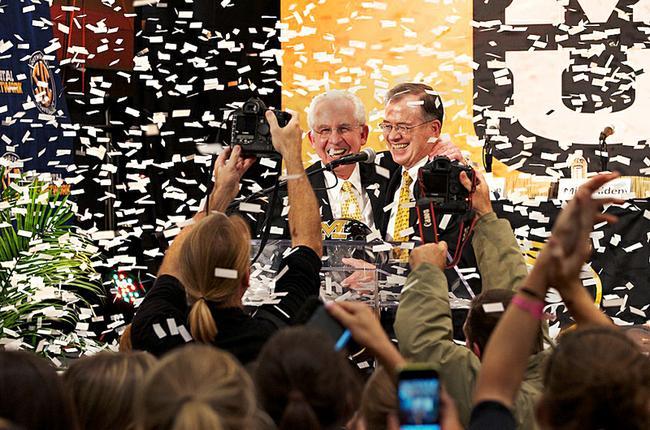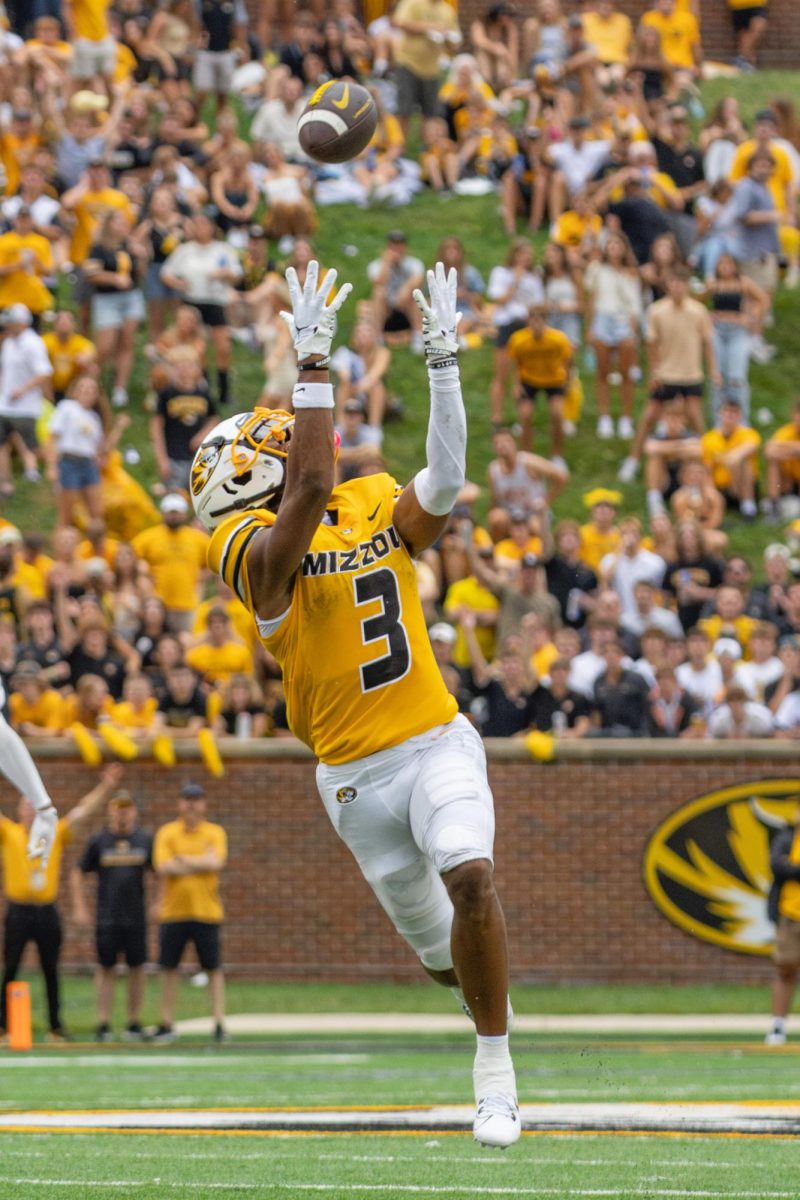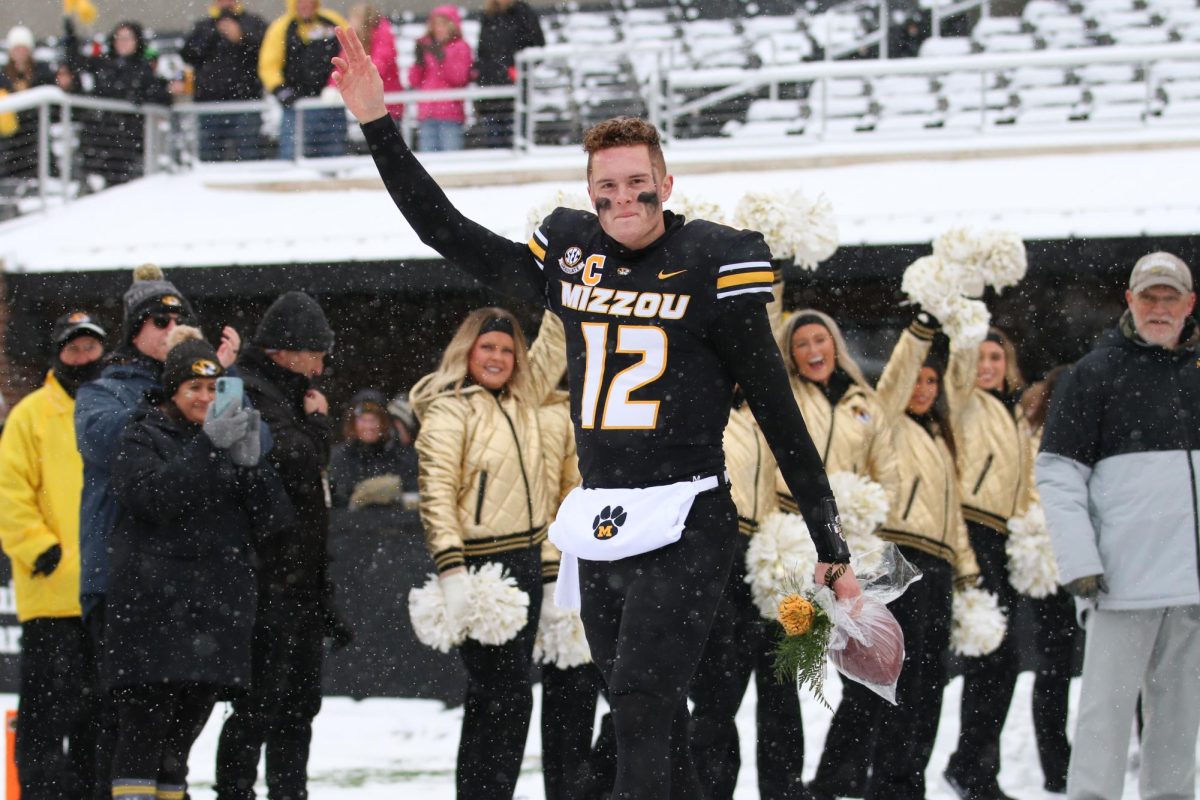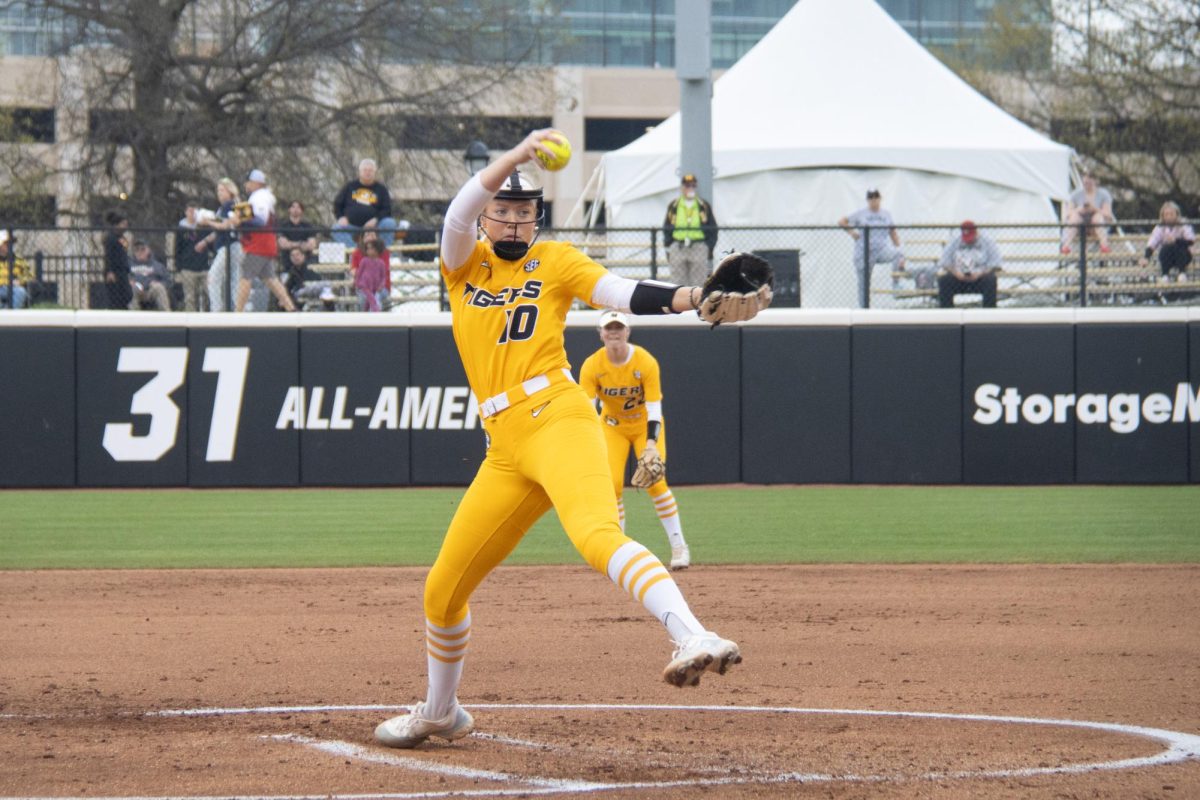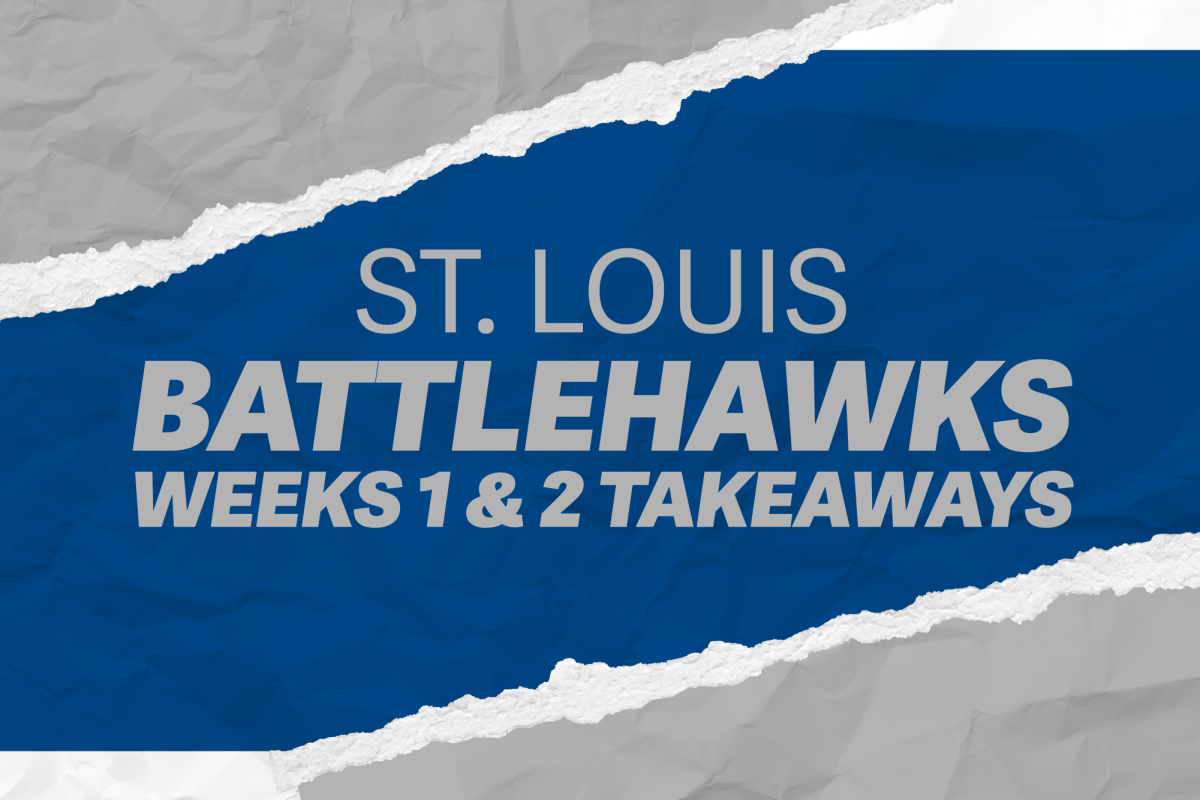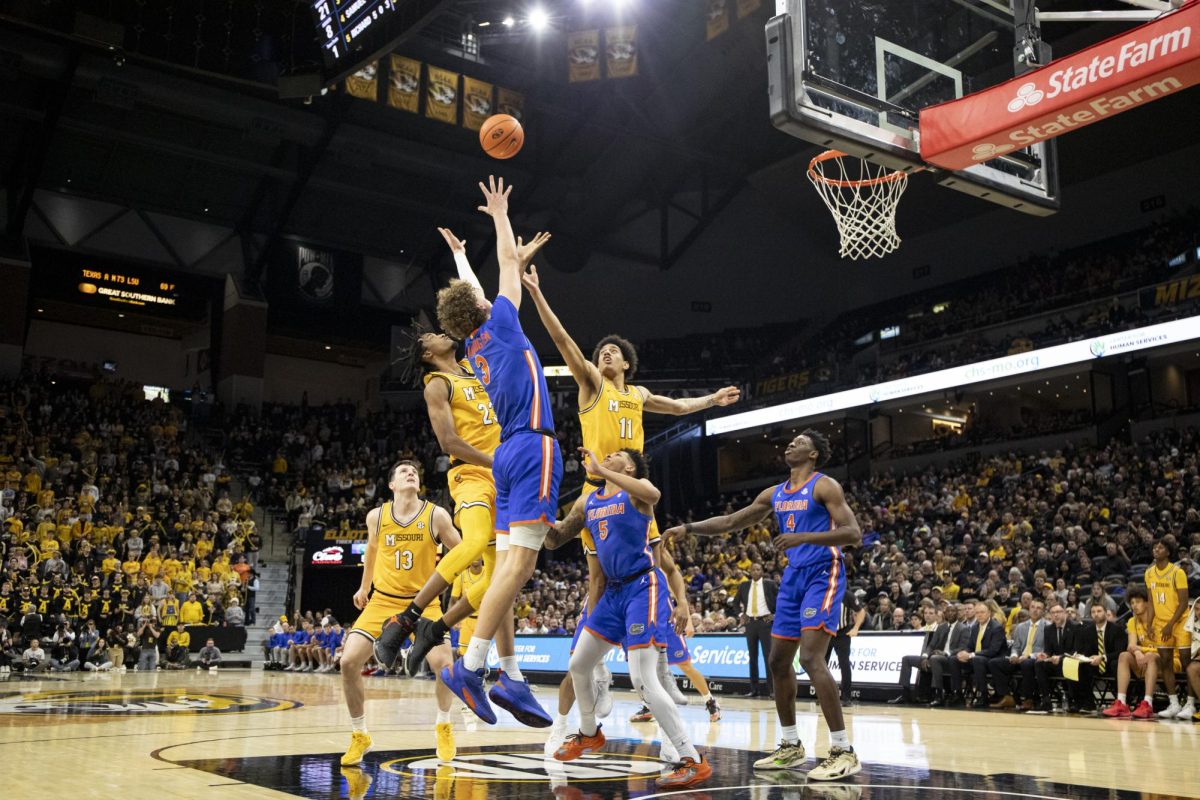After weeks of flirtation and rampant speculation, MU is leaving the Big 12 for a new home in the Southeastern Conference.
The SEC first announced the unanimous decision on its website early Sunday, and Missouri responded to the news by holding a celebratory press conference in front of hundreds of students, alumni and media in the student center later that evening.
“We are pleased, and we are proud to welcome you to the family of the Southeastern Conference,” SEC commissioner Mike Slive told the crowd. “We know that homecoming is a special tradition here at Missouri. So let me say to the entire Missouri nation, ‘Welcome to your new home.'”
Missouri will officially become the 14th member of the SEC on July 1, 2012, after conference presidents unanimously voted to accept the school this weekend. Slive said Missouri would compete in the league’s East division, but a cross-division rival hasn’t been decided on.
Missouri leaves the Big 12 after 15 years, though the school has been a member of previous incarnations of the conference since 1907. It also leaves behind a 119-year rivalry with Kansas. However, MU athletics director Mike Alden expressed hope the tradition would remain intact.
Although he didn’t mention the Big 12 by name, MU Chancellor Brady Deaton said “continuing instability in the conference we were in” led Missouri to explore other conferences. In the span of a year, the Big 12 has lost Colorado (Pac-12), Nebraska (Big Ten) and, most recently, Texas A&M (SEC).
“We were looking for long-term stability as a university, who we were associated with, who we were going to develop long-term partnerships with and where we were going to have financial security in our planning,” Deaton said. “We spoke to a large number of groups, and the single message that came through was, ‘take steps to give us a sense of where we’re going in the future. Look at alternatives.’”
Slive said Missouri approached the SEC early in the football season, about the time Texas A&M made efforts to leave the Big 12. Missouri is only the fourth institution to be admitted to the 78-year-old conference.
“So there’s a lot of stability,” Slive said. “In our bylaws, there’s about half of a sentence about what it takes to leave. If you don’t like it with us, you don’t have to be with us. And nobody’s left.”
Missouri took its first step towards conference realignment in early October, when the UM System Board of Curators granted Deaton the power to change conferences. Two weeks later, the board gave Deaton the rights to negotiate with other leagues, namely the SEC.
When the SEC’s website prematurely posted a news release welcoming Missouri to the conference last week, it seemed news of the school’s departure was only days away. But no announcement immediately came, perhaps due to the financial concerns related to an exit from the Big 12. According to the Associated Press, Missouri could owe the Big 12 as much as $26 million in exit fees.
Deaton said the conference and Missouri have not decided on any specific amounts as of Sunday. But he assured that the school, not the SEC, would fully foot the bill for any such expense.
When it came down to revenue sharing, Missouri and the Big 12 did not seem to be a good match. Missouri reportedly balked at proposal under which Big 12 schools would give TV rights to the league for six years in return for equal revenue sharing. In contrast, the SEC is in year three of a 15-year television contract. With the addition of two new schools, the SEC could reportedly yield at least $12 million more per year in revenue sharing for Missouri compared to the Big 12. Alden said Missouri ultimately wanted to feel like it was in a contract with equally committed institutions.
“When people start talking about limits to how they’re going to be together, kind of like a pre-nup, that’s not something that we necessarily see as being strong for when you’re trying to look at a league,” Alden said. “Those kinds of aspects had to do with are you treated equally, how is everybody going to be at the table, who are those teammates, what’s your footprint like nationally and how long are you going to be together. That comfort level we saw in the SEC has been something that is outstanding for us. Those are the kind of characteristics we are looking for.”

